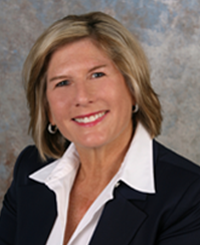Resume Writing and Interviewing
Are you older than 45? By 2010, the Bureau of Labor Statistics estimates that about one-third of the labor force will be comprised of “mature” workers (defined as over 45). If you are planning on returning to work during your retirement years, you may have to update (or dust off) your resume.
Don\’t feel obligated to list every job you\’ve ever had; concentrate on those positions that are pertinent to the employment you are seeking. If you\’re looking to change careers, or if you\’re reentering the workforce after a hiatus, concentrate on the transferable skills applicable to the new position, and downplay job titles if necessary.
Emphasize your accomplishments, results, and outstanding qualifications in a succinct paragraph at the top of your resume. Include any computer expertise, course work, or professional development to accentuate your openness to learning, as well as your e-mail address. When e-mailing a resume, don\’t send it as an attachment in case it can\’t (or won\’t) be opened, and e-mail a copy to yourself prior to sending it to a potential employer to make sure it looks like you want it to look. In your cover letter, emphasize that you are a proven entity (don\’t say you\’ve worked for 30 years), and that you are flexible, adaptable, willing to learn, and that you have transferable skills.
There is some disagreement as to what type of resume older workers should use. A functional resume highlights accomplishments and talents and downplays when the work was done. But many employers and recruiters know this type of resume can be hiding work gaps and age, and dislike them. Chronological resumes are the preferred choice among most of those in hiring positions, but they can be a disadvantage if your latest experience doesn\’t match the new position, or if age matters. Combing both types into a “chrono-functional” resume could be the best bet. An excellent site for resume types, sample resumes, and tips on negotiating and networking can be found at http://www.careerjournal.com/. Click on “Job-Hunting Advice.”
Once your foot is in the door – you have an interview – again emphasize your flexibility, motivation, interpersonal skills, and willingness to learn. Let the interviewer(s) know you want to contribute to the company and that you\’re not looking for a job because you\’re broke or bored! Use your age to your advantage, stressing your experience with problem solving, a proven track record, and strong work ethic. If you\’re happy to work part-time, let the prospective employer know that you are a bargain. You have tons of experience, but you don\’t have to be paid what they might pay a younger, full-time employee. Slip in (assuming its true) how you\’re playing tennis or love to downhill ski, hike, or swim to convey that you are a vital energetic person. Address any questions (insidious or obvious) about your age forthrightly be reassuming the interviewer you can handle the job as well as bring experience, enthusiasm, and wisdom to the position. If asked how you feel about working for someone younger than you, AARP suggests your respond, “When I get to the point where I can\’t learn from someone younger or older than I, I will stop working.” Be sure you\’re knowledgeable about the company, and follow up with a thank-you note. (For more suggestions on answering difficult interview questions, go to http://www.aarp.org/ and type “tough interview questions” into the search bar.)
Dress up, smile, be enthusiastic, make eye contact, and have a firm handshake. Be knowledgeable about the company, and come prepared with a list of several questions to ask the interviewer. Happy job-hunting!


